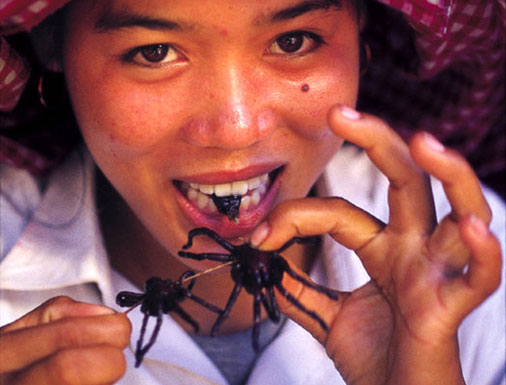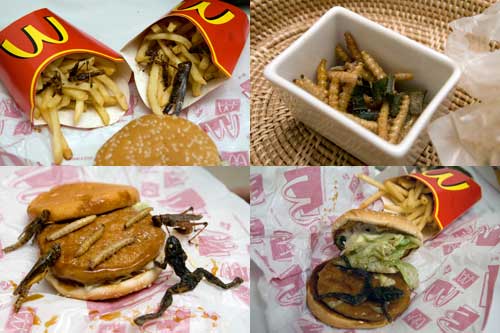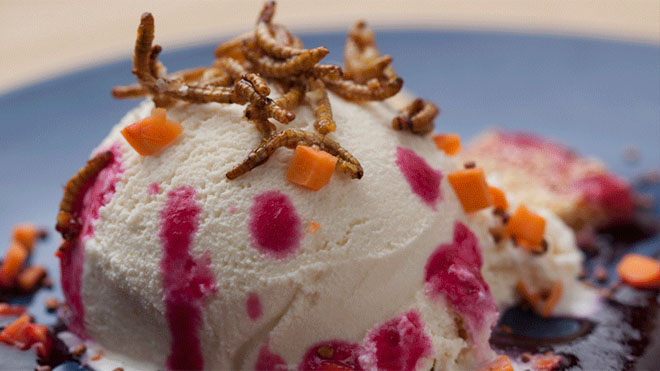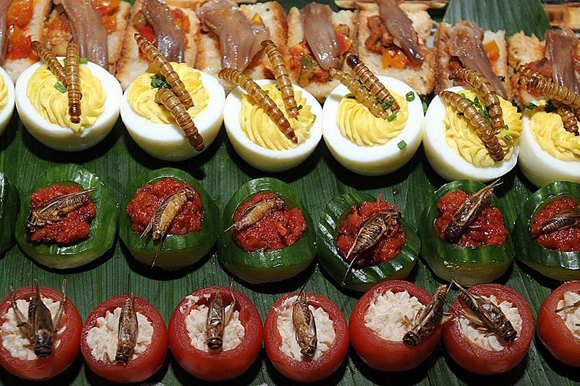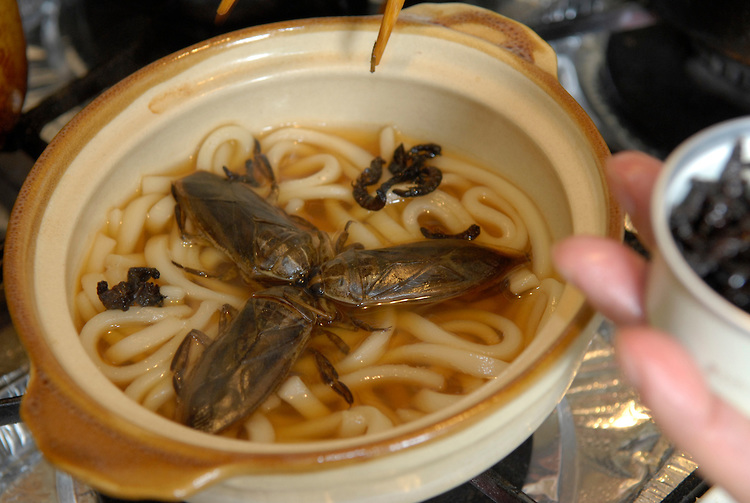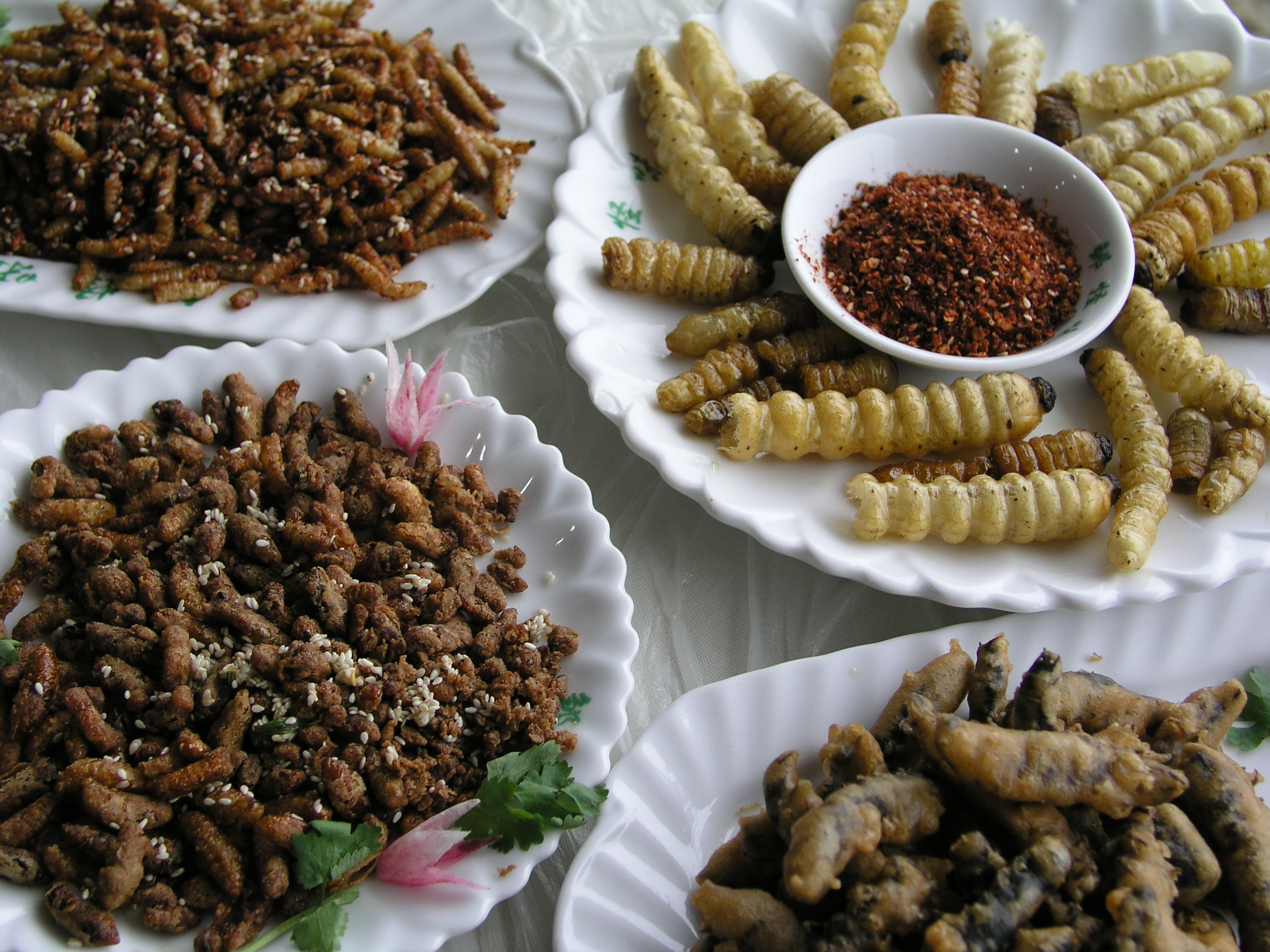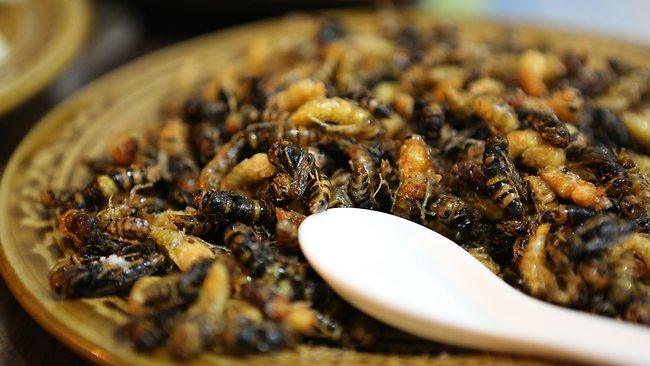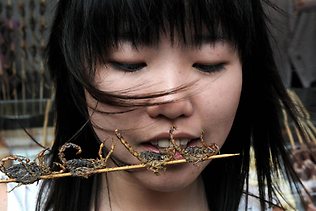If You Eat Insects, You Can Fight Obesity, World Hunger And Global warming
The United Nations released a 200-page report titled "Edible Insects: future prospects for food and feed security", encouraging the non-insect eating world to join in this delicacy. According to UN, insects are highly nutritional, eating it can fight world hunger problems, and they are environmentally-friendly to farm. 2 billion people worldwide are already reaping in the benefits, will you join in and add some fried grasshoppers to your grub?
United Nations say eat insects for a better you and a healthier world
A 200-page report, released at a news conference at the U.N. agency's Rome headquarters, says 2 billion people worldwide already supplement their diets with insects, which are high in protein and minerals, and have environmental benefits.
Image via theblaze.comThe thought of eating beetles, caterpillars and ants may give you the creeps, but the authors of a UN report published today said the health benefits of consuming nutritious insects could help fight obesity.
The U.N.’s Food and Agriculture Organization (FAO) said on Monday that grasshoppers, ants and other members of the insect world are an underutilized food for people, livestock and pets.
According to the U.N., they come with appetizing side benefits: Reducing greenhouse gas emissions and livestock pollution, creating jobs in developing countries and feeding the millions of hungry people in the world.
masslive.comThe United Nations says eating insects may combat global hunger and boost health worldwide by reducing malnutrition and even air pollution.
It notes than over 2 billion people worldwide already supplement their diet with insects.
However it admits that "consumer disgust" remains a large barrier in many Western countries.
A new report from the UN’s Food and Agricultural Organization (FAO) says Western societies should get over their “disgust” at the idea of eating bugs and join in.
Food and Agriculture Organization says insects are nutritious
The authors of the study by the Forestry Department, part of the UN Food and Agriculture Organisation (FAO), said many insects contained the same amount of protein and minerals as meat and more healthy fats doctors recommend in balanced diet
Insects are healthy, nutritious alternatives to mainstream staples such as chicken, pork, beef and even fish.
washingtonpost.comInsects contain "good fats", can be rich in calcium, copper, iron, magnesium, manganese, phosphorus, selenium and zinc, and are a source of fiber.
cbsnews.comThe authors point out that insects are nutritious, with high protein, fat and mineral content.
They are "particularly important as a food supplement for undernourished children".
“Insects are not harmful to eat, quite the contrary. They are nutritious, they have a lot of protein and are considered a delicacy in many countries,” said Eva Muller, the Director of FAO’s Forest Economics, Policy and Products Division.
un.orgInsects are environmentally-friendly to eat
Most insects are likely to produce fewer environmentally harmful greenhouse gases, and also feed on human and food waste, compost and animal slurry, with the products being used for agricultural feed, the agency said.
'Insects are everywhere and they reproduce quickly,' the agency said, adding they leave a 'low environmental footprint.'
They provide high-quality protein and nutrients when compared with meat and fish and are 'particularly important as a food supplement for undernourished children,' it said.
Insects are "extremely efficient" in converting feed into edible meat, the agency said. On average, they can convert 2 kgof feed into 1 kg of insect mass. In comparison, cattle require 8 kg of feed to produce a kilo of meat.
Farmers don’t need to clear acres of forest to raise them, and the bugs produce fewer planet-warming greenhouse-gas emissions than, say, cows. It could be a sustainable way to help feed a growing world whose demand for protein is soaring.
washingtonpost.com2 billion people worldwide are already enjoying it
Insects currently supplement the diets of some 2 billion people and have always been part of human diets in Asia, Africa and Latin America. Of the 1 million known insect species, 1900 are consumed by humans.
un.orgBeetles and caterpillars are the most common meals among the more than 1,900 edible insect species that people eat. Other popular insect foods are bees, wasps, ants, grasshoppers, locusts and crickets. Less popular are termites and flies.
masslive.comInsect-farming, the agriculture business of the future?
Experts see big potential for the insect farming industry, especially those farming insects for animal feed. Most edible insects are now gathered in forests.
masslive.comBut the U.N. says mechanization can ratchet up insect farming production. The fish bait industry, for example, has long farmed insects.
Insect farming is 'one of the many ways to address food and feed security,' the food agency said.
If we think about edible insects, there’s a huge potential that has essentially not been tapped yet,” Ms. Muller said. “Most [insects] are just collected and there’s very little experience in insect farming, for example, which is something that could be explored in view of a growing population.”
un.org


